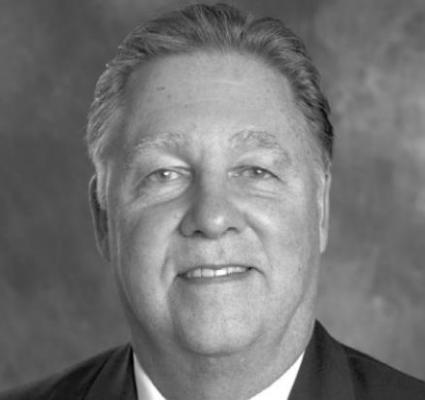Bryan Hobson Wildenthal
Bryan Hobson Wildenthal of Dallas, Texas, died on Sept. 4, 2021, at the age of 83, after a brief illness. He is survived by his wife, Adele; five children and their spouses, Rebecca Wildenthal, Bryan H. Wildenthal II (Ashish Agrawal), Lora Wildenthal (Carl Caldwell), Kerry Wildenthal Fagelman (Michael Fagelman), and Andrea Wildenthal Hanson (Clay Hanson); five grandchildren; and three greatgrandchildren.
The mainstay of his family, Hobson was a loyal and loving husband, and a kind and deeply supportive father. He relished his role as Opa to James, Justin, Vera, Sophia, Walter, Finlay, Calliope and Barrett, and was adored by his family.
Hobson was born in San Marcos, Texas, on Nov. 4, 1937, to Doris Kellam Wildenthal and Bryan Wildenthal, president of Sul Ross State University in Alpine, Texas, from 1952 to 1965. He was the older of two children. His surviving brother, C. Kern Wildenthal of Dallas, Texas, is president emeritus of UT-Southwestern Medical Center. Hobson treasured his relationship with Kern, Kern’s wife Marnie, and their daughters Pam Kernie and Catharine Cummer and their families. Hobson graduated from
Sul Ross in 1958, and earned his PhD in physics at the University of Kansas in 1964. He completed fellowships at Rice University and Oak Ridge National Laboratory before serving on the faculties of Texas A&M University and Michigan State University. Renowned for his work in theoretical nuclear physics, he was named head of the physics and atmospheric science department at Drexel University in Philadelphia, Penn., in 1983. He moved to the University of New Mexico in 1987 as dean of its College of Arts and Sciences. He published more than 200 influential research papers especially focused on what became known as the “Wildenthal shell-model Hamiltonian.” His theoretical work accurately predicted physical phenomena later verified in experimental studies.
In 1992, Hobson joined the University of Texas at Dallas as the university’s chief academic officer. His work and influence over the next three decades affected all aspects of the institution, from the sciences, to the arts, to business affairs, to campus architecture and landscaping, to the recruitment and retention of high-achieving scholars who define the university. He held several titles at UTD, including provost, and executive vice president, and for more than a year during 2015-2016, interim president. In 2019 he returned to his role as professor of physics and distinguished scholar in residence, continuing to teach until just a few months before his death.
A champion of academic excellence, Hobson led UTD’s adoption of a core curriculum addressing key components of undergraduate education. In the early 1990s, his idea to provide full UTD scholarships for National Merit Scholarship Program semifinalists to attract exceptional students to UTD (then largely unknown), set the stage for the academic distinction that has characterized the university ever since. He also inspired Margaret McDermott to make an historic $32 million gift to UTD to establish the prestigious Eugene McDermott Scholars Program. Today, nearly 200 National Merit Scholars choose UTD each year.
Hobson played a pivotal role, along with the four UTD presidents with whom he served, in numerous accomplishments of the university. Dozens of state-of-the-art buildings were constructed. A $50 million landscape enhancement project transformed UTD’s campus esthetics. Alliances and joint programs were forged with UT Southwestern Medical Center. The Edith O’Donnell Institute of Art History, funded by a $17 million gift from the O’Donnell Foundation, opened its doors, and gifts of art from the Margaret and Trammell Crow family and the Richard Barrett family are making UTD a cultural destination.
In 2017, a further gift from the Eugene McDermott Foundation created an endowment of $10 million in Hobson’s name to support undergraduate research within UTD’s Honors College, which had been established under Hobson’s leadership in 2014. The college was then renamed by the UT System Board of Regents as the Hobson Wildenthal Honors College.
Hobson received many international, national and local honors, for both his scientific work and his community service, including election as a fellow of the American Physical Society and selection for the Dallas Historical Society’s Award for Excellence in Education. He was awarded both a senior U.S. fellowship from Germany’s Alexander von Humboldt Foundation and a fellowship from the John Simon Guggenheim Memorial Foundation.
He was appointed a visiting distinguished scientist at Brookhaven National Laboratory, Los Alamos National Laboratory, the University of Munich, the Max Planck Institute for Nuclear Physics, the GSI Helmholtz Centre for Heavy Ion Research, the University of Paris in Orsay, Oxford University, Manchester University, and the University of São Paulo in Brazil. In 2019 UTD’s Ackerman Center for Holocaust Studies honored Hobson with the inaugural Edward M. Ackerman Leadership Award for his role in helping create and advance the groundbreaking center and its Holocaust Studies Program.
In view of the COVID-19 situation, memorial services will be deferred to a later date. Memorial contributions may be made to the Ackerman Center for Holocaust Studies, to the Hobson Wildenthal Honors College at UTD, giving.utdallas.edu/, or to a charity of the donor’s choice.


